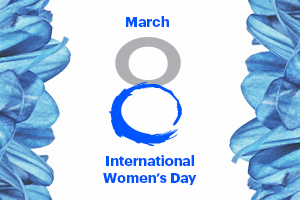
On Monday July 11, 2022, Vertex Pharmaceuticals announced they acquired ViaCyte for $320 million in cash to help speed up the development of VX-880, Vertex’s stem cell-derived therapy for people with type 1 diabetes (T1D).
What does this mean for Canadians living with type 1 diabetes?
T1D is an autoimmune disorder where the body destroys the beta cells in the pancreas that produce the insulin hormone. People with T1D must administer external insulin, either through injection, pen or pump in order to survive. One of the pathways to cures for T1D is through beta cell replacement therapies that allow the body to start producing its own insulin again, limiting or ideally entirely removing the need for externally administered insulin.
What does this acquisition mean for type 1 diabetes beta cell replacement research?
Per the joint press release, this deal provides Vertex with access to ViaCyte’s:
- Complementary assets.
- Capabilities and technologies including additional human stem cell lines.
- Intellectual property around stem cell differentiation.
- Good Manufacturing Practice (GMP) manufacturing; and
- Access to novel hypoimmune stem cell assets via the ViaCyte collaboration with CRISPR Therapeutics.
Advancing beta cell research
This acquisition brings together the two highly innovative companies pursuing cell replacement therapies as a transformative and potentially curative approach for people with T1D.
Vertex and ViaCyte have been working independently to develop cell replacement therapies for people with T1D. This deal will allow them to combine their resources, technologies, and intellectual property, and position Vertex to move cures to market faster.
Both companies currently have in human clinical trials for the stem cell therapies. These require implantation of beta cells into the liver to see if they will encourage the body to start producing its own insulin again.
VX-880 is a “naked” cell therapy that requires the recipient to use immunosuppressive therapy, like other organ or tissue transplants. ViaCyte is testing two stem cell-derived replacement therapies and a CRISPR gene-editing technology for cell replacement that wouldn’t require immunosuppression after implantation.
What is JDRF’s role?
JDRF support has been crucial to getting to this point where both companies have cell replacement therapies in human clinical trials.
JDRF has provided long-time and significant support of ViaCyte through research funding. JDRF support includes the first ever clinical trial to test a stem cell-derived cell replacement therapy for T1D, in 2014.
Vertex’s phase I/II clinical trial of VX-880 was made possible by Dr. Doug Melton’s years of JDRF-funded research and an investment from the T1D fund in Semma Therapeutics—a biotech company founded by Dr. Melton to develop a stem cell-derived islet therapy for T1D—which was acquired by Vertex Pharmaceuticals.
JDRF and all its affiliates have been leaders in stem cell research and have collectively provided funding of over $150 million since 2000, as part of JDRF’s cell therapies program.
Additionally, the T1D Fund has aggressively invested alongside private venture capital firms in the beta cell replacement field.
As part of JDRF’s funding support to cure research, the goal has been to accelerate multiple approaches to cell therapies. Today, 50+ companies and research groups, including Vertex and ViaCyte, are advancing cell replacement development and cures with JDRF support and through the JDRF Beta Cell Replacement Consortium. Vertex’s acquisition of ViaCyte will ideally encourage other companies in this space to evaluate and modify their programs with the goal of finding cures faster.
Both ViaCyte and Vertex have clinical trials currently active in Canada, out of the University of Alberta and McGill respectively.
To learn more about JDRF funded clinical trials actively recruiting in Canada, please click here.
JDRF will continue to monitor the results of VX-880 and report back with updates as they become available.



